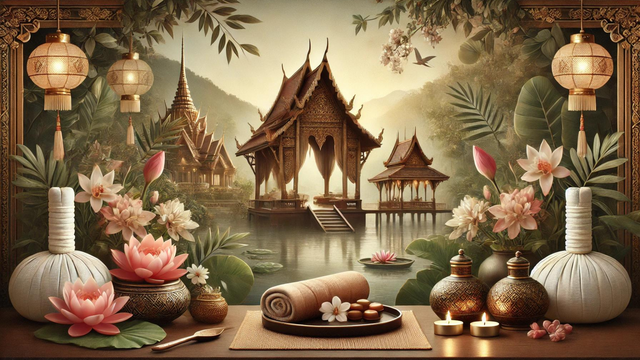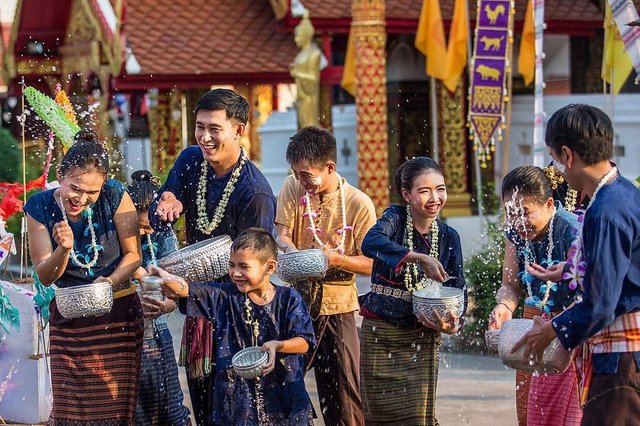Songkran: Thailand’s New Year Celebration of Water, Renewal, and Joy
Songkran: Thailand’s New Year Celebration of Water, Renewal, and Joy

Songkran, Thailand’s beloved New Year festival, is a celebration of joy, renewal, and deep-rooted traditions. Known worldwide for its exciting water fights, the festival holds much deeper cultural and spiritual meaning for Thai people. Songkran, which takes place annually from April 13th to 15th, marks the beginning of the traditional Thai New Year and is one of the most important holidays in Thailand. This blog explores the origins, customs, and the lively yet meaningful nature of Songkran.
The Historical Roots of Songkran
Songkran comes from the Sanskrit word “Sankranti,” meaning the movement of the sun from one zodiac to another. Historically, it signified the solar new year in many Southeast Asian cultures, with Thailand embracing it as the beginning of a fresh year. Although Thailand now officially follows the Western calendar, Songkran remains an integral part of Thai identity and culture, a time for cleansing the old and welcoming the new with gratitude and joy.
Rituals and Religious Practices
At its core, Songkran is a spiritual celebration focused on family, religion, and community. Many Thai people begin Songkran by visiting temples to offer food to monks, make merit, and pay respect to the Buddha. One significant ritual is Rod Nam Dam Hua, where younger people pour fragrant water over the hands of their elders as a gesture of respect and to receive blessings for the coming year.
Additionally, temples hold the Song Nam Phra ceremony, during which water is gently poured over Buddha statues to cleanse them and ask for blessings. These rituals reflect the deeper significance of water in the festival—it represents purification, renewal, and the washing away of misfortune from the past year.
The Water Festival: Joyful Chaos
While Songkran is rooted in religious and cultural traditions, it has evolved into a festive, nationwide water fight. Throughout Thailand, people of all ages take to the streets armed with water pistols, buckets, and hoses, drenching friends, family, and even strangers in good-natured water play. Cities like Bangkok, Chiang Mai, and Pattaya become the epicenters of these celebrations, with major streets turned into joyous battlegrounds for splashing water.
The practice of throwing water is believed to bring good fortune and symbolizes cleansing. Originally, this was a gentle act of pouring water over someone’s hands or shoulders, but today it has transformed into large-scale water battles, adding a fun and modern twist to the traditional blessing.
Family and Togetherness
Songkran is also a time for family reunions and honoring the importance of family ties. Many people travel back to their hometowns to spend quality time with their loved ones, much like Westerners do for Christmas or New Year. Homes are cleaned and prepared for the new year, and special meals are shared. Traditional Thai dishes, along with delicious local sweets like Kanom Krok (coconut pancakes) and Kanom Tom (coconut rice balls), often accompany these family gatherings.
For rural communities, Songkran is a time of great unity. Villages hold parades, beauty contests, and traditional performances, reinforcing the sense of community and shared cultural heritage. In many places, building sand pagodas at temples and decorating them with colorful flags is a customary activity, representing merit-making.
Songkran and Modernity
While deeply traditional, Songkran has also embraced modernity. The massive water fights attract tourists from around the world, making it one of Thailand's most popular festivals. In major cities, streets are filled with music, food stalls, and concerts, creating a festive atmosphere that brings together people from all walks of life. However, even with the growing commercialization and the influx of tourism, the underlying cultural significance of Songkran remains intact.
In recent years, concerns about water conservation and safety have also been raised, leading to efforts to ensure that Songkran remains sustainable and safe. Local governments have encouraged the responsible use of water and organized designated areas for water play to protect cultural sites and promote mindful celebration.
Conclusion: A Celebration of Renewal
Songkran is far more than just a water festival; it’s a time for reflection, renewal, and connection. From the reverence shown in temple rituals to the laughter and fun of water fights, the festival embodies the dual spirit of Thai culture—spirituality and celebration. Whether you experience Songkran through its peaceful ceremonies or its vibrant street celebrations, it’s a cultural experience like no other. It marks not only the start of a new year but also a time for refreshing both the body and the spirit, while deepening bonds with family, friends, and the wider community.
This Thai New Year festival is a testament to Thailand’s rich cultural heritage and the enduring importance of family, respect, and joy in Thai society. As you join the Songkran festivities, remember to not only splash water but also embrace the festival’s deeper meaning of renewal, gratitude, and togetherness. info from blog https://www.saosiam.org/blog/bgx34kwtch3rnpjzlxlxxwf4aenz2r
